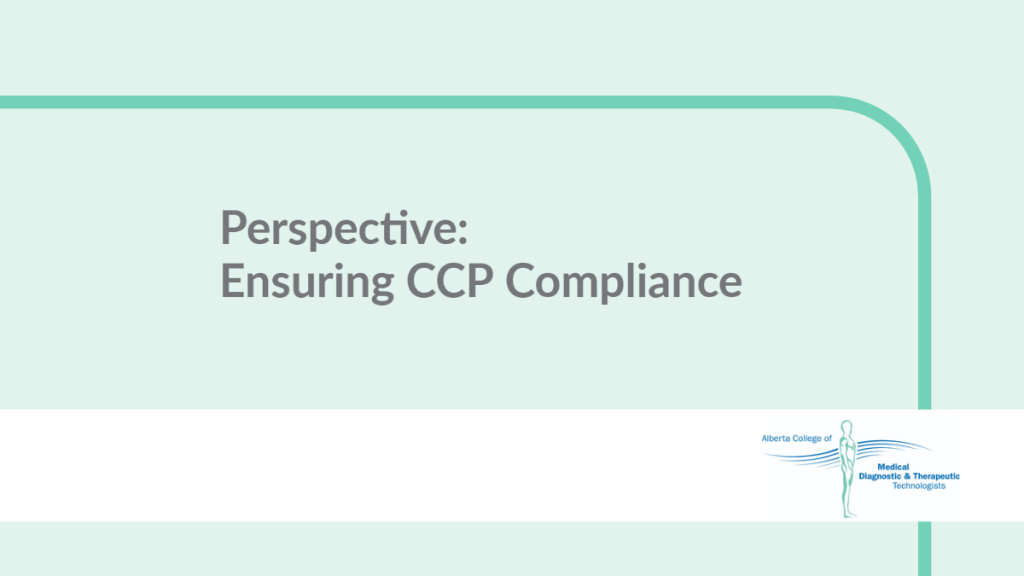Perspective: Ensuring CCP Compliance
The following story is intended to encourage registrants of the Alberta College of Medical Diagnostic and Therapeutic Technologists (the College) to consider regulatory scenarios. *All names and scenarios are entirely fictional.
Cindy* is an ENP new to Alberta. She became a full College registrant on February 2, 2023, and wants to ensure that she meets her regulatory obligations; however, she is unsure how many learning hours she must complete in this Continuing Competency Program (CCP) cycle.
What must Cindy do to be compliant with the CCP?
To be compliant, Cindy must complete all three components of the CCP on the My CCP platform within the 2022-2023 CCP cycle (September 1 – August 31). The three components include self-assessment, a learning plan, and learning activities, including a self-reflection. As Cindy became a registrant in February, she must complete 14 hours of learning (two hours per month she holds a full practice permit) and reflect on how it will enhance/impact her practice.
Is it mandatory for Cindy to complete Continuing Competency hours?
Yes. Alberta’s Health Professions Act states that every health profession’s regulatory college must have a continuing competence program. As part of the CCP, registrants must complete a reflective practice in each registration year.
What happens if Cindy fails to complete her required CCP hours?
To renew her practice permit, Cindy must comply with CCP requirements while she has been a full registrant. Without compliance, Cindy puts her practice permit at risk and may be unable to practice her profession.
What Standards of Practice apply to this scenario?
Below are indicators which apply to this situation from a regulatory perspective:
Standard Area 2.0 – Professional Accountability
Standard 2.1 Legislation, Standards and Ethics
g. Adhere to legal obligations required by the College
Standard 2.2 Professional Competence
d. Use self-reflection and develop performance goals to enhance professional effectiveness
e. Undertake continuing professional development
f. Comply with all of the requirements of the College’s Continuing Competence Program
What within the Code of Ethics applies to this scenario?
Principle 1 – Responsibility to the public
a. Competent care
A regulated member’s primary responsibility is to provide competent service to patients with respect to their individual needs and overall welfare.
Principle 3 – Responsibility to oneself
a. Personal conduct
A regulated member maintains a level of personal conduct that upholds the trust of the public and the integrity of the profession.
b. Accountability
A regulated member takes responsibility and is accountable for their professional activities.
Remember
Learning does not stop when you graduate from an accredited healthcare program. We learn every day. Progressively gaining knowledge and skills is what a healthcare professional must do to ensure we provide the best patient care.




